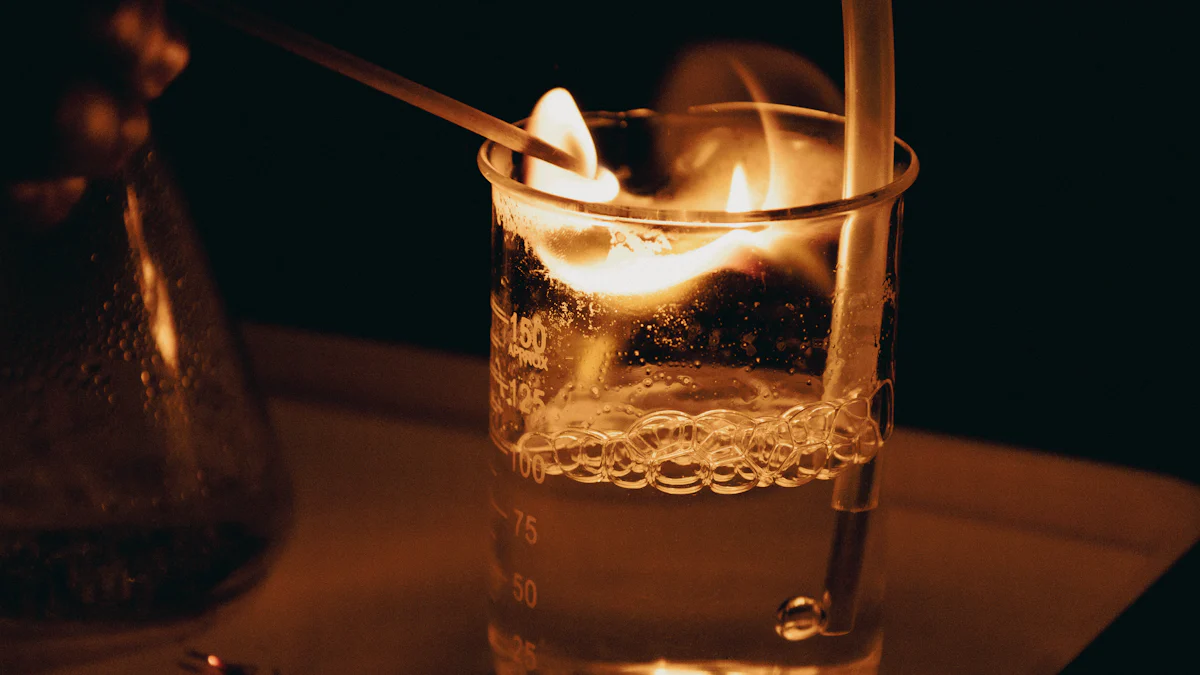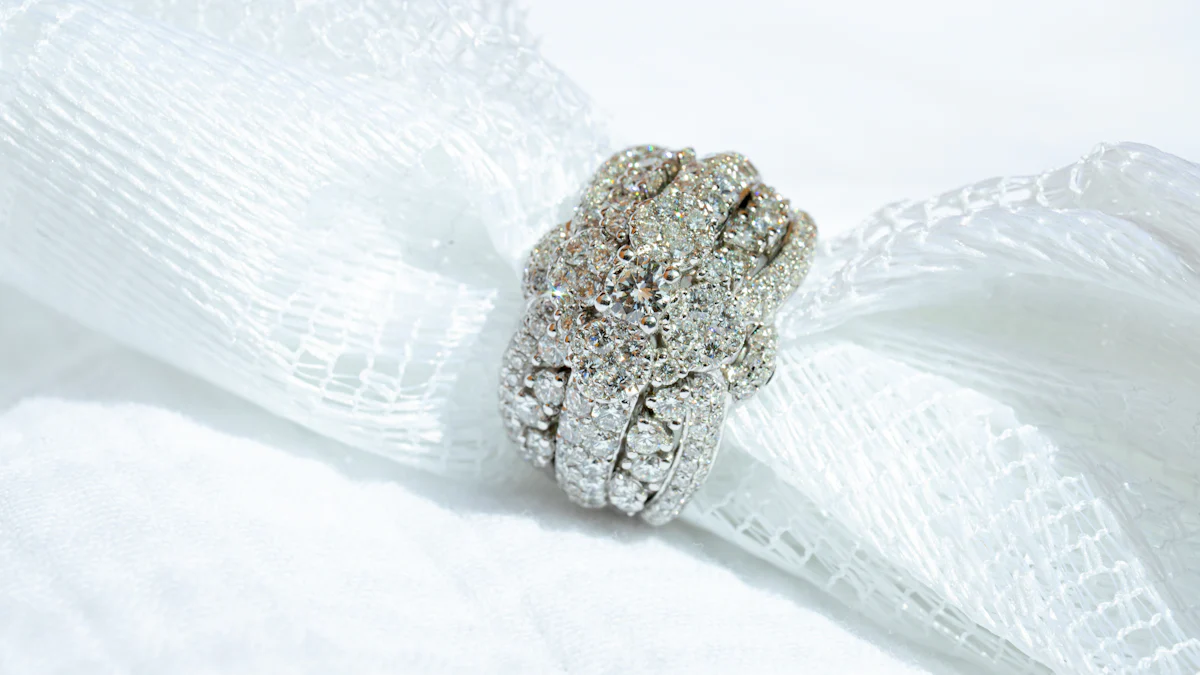How to Tell if a diamond is Real
Identifying real diamonds holds significant importance. Real diamonds possess unique characteristics that make them valuable. Fake diamonds can lead to financial loss. Mistaking a fake for a real diamond can cause emotional distress. Real diamonds symbolize love and commitment. Fake diamonds lack the same value and meaning. Knowing how to tell if a diamond is real can prevent disappointment. Real diamonds maintain their brilliance and durability over time. Fake diamonds may lose their luster quickly. Understanding these differences ensures informed decisions.
Simple Tests to Tell if a Diamond is Real

The Water Test
Materials Needed
Gather a glass of water and the diamond you want to test. Ensure the glass is clear to observe the diamond's behavior.
Step-by-Step Guide
Fill the glass with water.
Hold the diamond carefully above the glass.
Drop the diamond gently into the water.
Interpreting the Results
A real diamond will sink to the bottom of the glass. The density of a genuine diamond causes it to submerge. If the diamond floats, it is likely fake. This simple test helps tell if diamond authenticity is present.
The Fog Test
Materials Needed
Prepare the diamond and your breath for this test. No additional tools are necessary.
Step-by-Step Guide
Hold the diamond between your fingers.
Breathe on the diamond to create a fog.
Observe how long the fog remains on the surface.
Interpreting the Results
A real diamond will clear up the fog almost instantly. The high thermal conductivity of a genuine diamond disperses heat quickly. If the fog lingers, the diamond may be fake. This method provides another way to tell if diamond authenticity exists.
Intermediate Methods to Tell if Diamond is Real
The Scratch Test
Materials Needed
To perform the scratch test, gather a piece of glass and the diamond in question. Ensure that the glass is clean and free from any debris.
Step-by-Step Guide
Hold the diamond securely in your hand.
Place the piece of glass on a stable surface.
Gently press the diamond against the glass.
Drag the diamond across the glass with steady pressure.
Interpreting the Results
A real diamond will leave a scratch on the glass. The hardness of a genuine diamond allows it to cut through glass easily. If the diamond does not scratch the glass, the diamond may be fake. This method helps tell if diamond authenticity is present.
The UV Light Test
Materials Needed
For the UV light test, obtain a UV light source and the diamond you wish to test. A dark room will enhance visibility during the test.
Step-by-Step Guide
Turn off the lights in the room.
Hold the diamond under the UV light.
Observe the color emitted by the diamond.
Interpreting the Results
A real diamond often emits a blue glow under UV light. The presence of fluorescence in a genuine diamond causes this effect. If the diamond does not emit a blue glow, the diamond might be fake. This test provides another way to tell if diamond authenticity exists.
Advanced Techniques to Tell if Diamond is Real
The Loupe Test
Materials Needed
You need a jeweler's loupe and the diamond you want to examine. A loupe with 10x magnification works best for this test.
Step-by-Step Guide
Hold the loupe close to your eye.
Bring the diamond up to the loupe.
Focus on the inside of the diamond.
Look for imperfections or inclusions.
Interpreting the Results
A real diamond often has small imperfections. These imperfections, known as inclusions, help tell if diamond authenticity exists. A flawless stone may indicate a fake diamond. The loupe test provides a closer look to tell if diamond characteristics are genuine.
The Heat Test
Materials Needed
Gather a lighter, a glass of cold water, and the diamond. Ensure the water is cold enough for the test.
Step-by-Step Guide
Hold the diamond with tweezers.
Heat the diamond with the lighter for about 40 seconds.
Drop the heated diamond into the cold water.
Interpreting the Results
A real diamond will remain intact after the heat test. The structure of a genuine diamond withstands sudden temperature changes. A fake diamond may crack or shatter. The heat test helps tell if diamond durability is present.
Professional Appraisal

When to Seek Professional Help
Situations Requiring Expert Evaluation
Selling a diamond Selling a diamond requires an accurate appraisal. Experts can tell if diamond characteristics match market standards.
What to Expect from an Appraisal
Process and Outcomes
A professional appraisal involves several steps. The appraiser will first examine the diamond's physical attributes. The expert will tell if diamond features align with industry standards. The appraiser will use specialized tools for analysis. These tools help tell if diamond properties are genuine. The expert will then assess the diamond's market value. The appraiser will provide a detailed report. This report will tell if diamond authenticity and value are confirmed. You can expect clarity and confidence from this process. The appraisal ensures informed decisions about your diamond.
Understanding how to tell if diamond authenticity is present ensures wise decisions. Simple tests like the water and fog tests provide quick insights. Intermediate methods such as the scratch and UV light tests offer more assurance. Advanced techniques, including the loupe and heat tests, confirm diamond characteristics. For those unsure, professional appraisal remains a reliable option. Always remember to tell if diamond features align with genuine standards. Consider these tips to confidently tell if diamond authenticity exists.
See Also
Tips for Authenticating Genuine Diamond Rings at Home
Insight into Diamond Cuts for Engagement Bands
Choosing the Ideal Synthetic Diamond Bracelet

